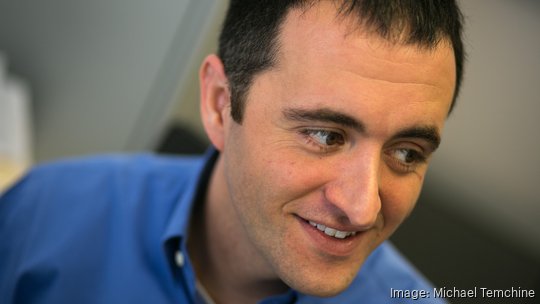
A Baltimore technology consulting firm is experimenting with a new workforce model to help attract and retain top talent following the challenges of the global pandemic — a four-day workweek.
As the Covid-19 pandemic subsides, countless companies are reconsidering their pre-pandemic workplace policies and adjusting hiring practices to fit new demands in the talent pool. Some firms are allowing employees to work partially or entirely remote and others have added major hiring perks in attempts to remain competitive and attractive. Dustin Sitton is trying something especially unique at his firm Incite Automation. In his efforts to "desperately trying to hire" more talent for his eight-member team, he decided to give his staff members an extra day off each week.
Incite, which specializes in helping companies replace outdated software and streamline business processes, has been piloting a four-day, 36-hour workweek. The experiment got off to a rocky start, but taught Sitton a lot as a CEO about how hard employees will try to make something work when they really want it to. Now, he hopes the new benefit will help Incite bring in some new team members as well.
Incite has four open positions. Sitton wants to keep growing the team, but has faced significant difficulty trying to hire in recent months. The tech talent pool has become especially competitive amid Covid-19 and the global shifts in remote work and workplace benefits. Sitton wanted to find something that recruiters could use to tell potential hires "Incite is offering something others can’t."
"I wanted to add some incentive to keep people here, and also to give them a good work-life balance," he said. "But I was tired of trying to 'keep up with the Joneses' in terms of benefits other companies were offering."
Sitton said he landed on the four-day week concept and started trying to do some research on the model. He especially wondered if a 10% reduction in time spent at work would result in about a 10% reduction in productivity and billing for his firm, which bills by the hour for its services. But Sitton found little more than anecdotal evidence about the benefits to corporations and employees. He decided he would have to gather his own data, and that it was best to run a four-day workweek experiment while the company was still very small and agile.
The company launched a four-week pilot of the model last month, which was later extended to six weeks. Here's how it went:
- Week 1: Incite sees about a 20% drop in billing. Sitton said he was extremely disappointed in this initial effect, and told employees to "enjoy the experiment while it lasted" because he expected to resume a normal schedule after the fourth week.
- Week 2: 15% drop. Sitton said fortunately, the firm's clients weren't feeling the impact of the experiment, "it was just our wallets." So he decided to continue with the pilot.
- Week 3: 10% drop. Sitton said as billing continued to trend in the right direction, he noticed Incite's employees were figuring out how to make the new model work.
- Week 4: 5% drop. Sitton decided to extend the pilot for two more weeks to see if the trend could be sustained.
- Week 5: Incite's billings are back to pre-four-day workweek levels. Sitton took this as a sign that "this could actually work."
- Week 6: The pilot is now in its sixth week, and with billings holding at pre-pilot levels, Sitton said he is ready to make the four-day model permanent.
Sitton said making the model effective required significant restructuring, to ensure Incite's clients were not negatively impacted by the change. Among the new rules Incite put in place are: requiring employees to work nine hours instead of eight hours each work day, requiring them each to take the same weekday off for an entire quarter at a time, and ensuring team members are taking off different days so that enough people are always available to work on any given work day.
There are still some kinks to be worked out, but at this point, the firm would only consider returning to a normal five-day, 40-hour model, if Incite's clients start noting any decline, Sitton said.
"As a CEO, this process has been super nerve-wracking for me, but also really encouraging," he said. "I'm excited to see and show that this can work even in an organization like ours that closely ties billing to productivity."









